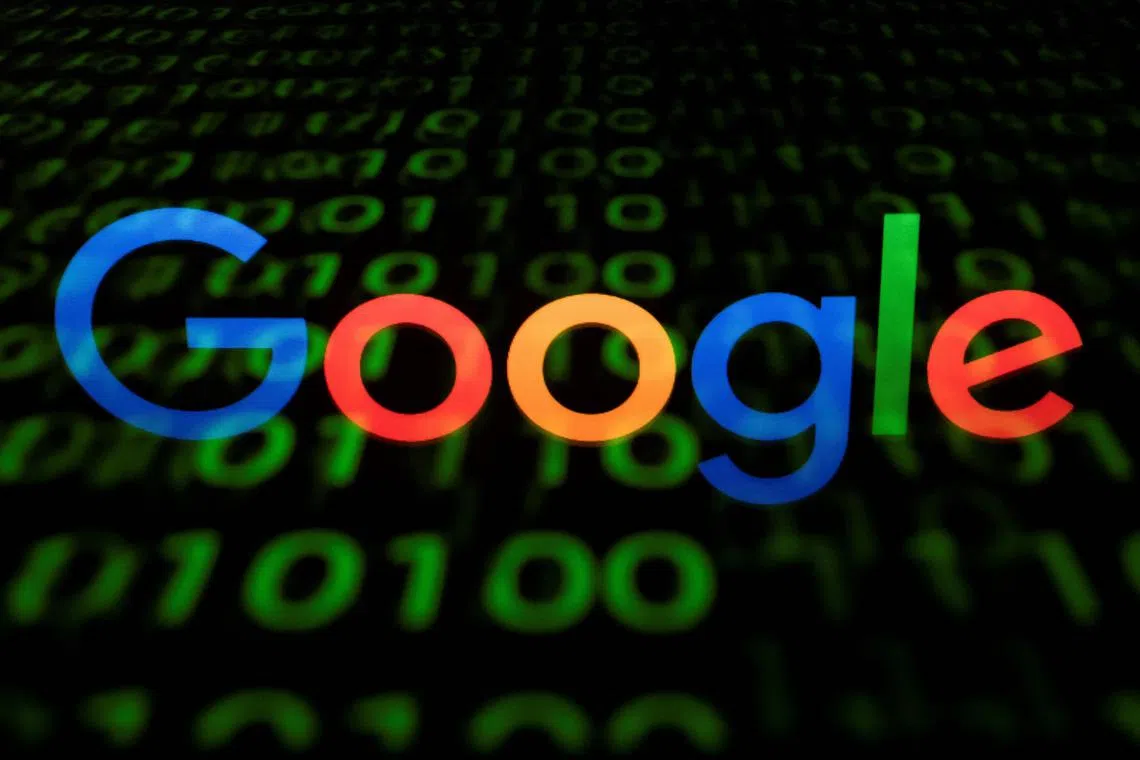Google parent Alphabet in talks to buy cyber-security start-up Wiz for $30.8 billion
Sign up now: Get ST's newsletters delivered to your inbox

The tech giant is close to its biggest acquisition ever, despite the possibility regulators might try to block the deal.
PHOTO: AFP
NEW YORK - Google parent Alphabet is in advanced talks to acquire cyber-security start-up Wiz for roughly US$23 billion (S$30.8 billion), according to three people with knowledge of the discussions, in a deal that would represent the technology giant’s biggest acquisition.
Although a deal looks likely, talks could still fall apart, the people said.
Google and Wiz did not respond to requests for comment.
Google has moved forward with negotiations despite the possibility that regulators might try to block the deal.
But the company may be willing to fight to beef up its cloud computing division, which lags behind Amazon Web Services (AWS) and Microsoft Azure.
Google was sued by the US Justice Department in two separate antitrust cases, one targeting its ubiquitous search engine and another seeking to break up its digital advertising technology business.
A verdict in the search case is expected this summer.
Regulators under President Joe Biden have taken a hard line against acquisitions by all the tech giants and corporate consolidation in general.
It blocked deals such as the publishing giant Penguin Random House’s US$2.18 billion acquisition of rival Simon and Schuster and JetBlue’s US$3.8 billion acquisition of Spirit Airlines.
Amazon abandoned its US$1.7 billion acquisition of iRobot after pushback from European and US regulators.
And the Federal Trade Commission unsuccessfully sued to block Microsoft’s acquisition of video game company Activision.
For years, Google executives have focused on making money outside of online advertising, but Google search, YouTube and its other platforms still bring in three-quarters of Google’s revenue.
Buying Wiz would not move the needle overnight, but would forge a connection between Google Cloud and companies that use Wiz to safeguard data held in AWS, Azure and other cloud computing systems.
Such a splashy purchase would be unusual for Google, which has been cautious about large acquisitions. Less than two years after buying Motorola for US$12.5 billion, Google sold it to computer maker Lenovo – at a loss.
More recently, in 2021, Google paid US$2.1 billion for fitness-tracker company Fitbit, a deal that also faced regulatory scrutiny before it was approved.
Google has made a number of acquisitions to improve what it can offer to cloud computing customers.
In 2022, it bought Mandiant, a cyber-security company, for US$5.4 billion.
The same year, it bought Siemplify, another cyber-security firm.
Google Cloud chief executive Thomas Kurian has led the push to buy Wiz, one of the people familiar with the talks said.
He has sought to make cyber security a distinguishing strength of his division, and Wiz would go a long way in helping with that.
The start-up tries to help corporate customers, including BMW, Slack and Morgan Stanley, reduce security threats when they use cloud computing services.
Wiz, which was founded in Israel in 2020 and is now headquartered in New York, said in May it had raised US$1 billion in funding and is now valued at US$12 billion.
The company has grown rapidly. Earlier in 2024, it said it had US$350 million in annual recurring revenue, up from US$100 million two years earlier.
Wiz’s investors include Andreessen Horowitz, Lightspeed Venture Partners and Thrive Capital.
With 900 employees across the US, Europe, Asia and Israel, Wiz previously said it planned to add 400 workers globally in 2024.
Dealmaking in the broader technology sector has experienced a pickup in 2024.
In January, design software company Synopsys agreed to buy smaller rival Ansys for about US$35 billion.
Hewlett Packard Enterprise struck a deal in January to buy networking gear maker Juniper Networks for US$14 billion.
Technology accounted for the largest share of mergers and acquisitions during the first half of 2024, jumping more than 42 per cent year on year to US$327.2 billion, according to data from Dealogic. NYTIMES, REUTERS


